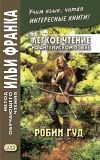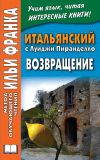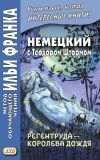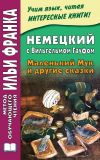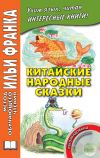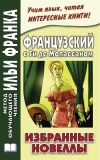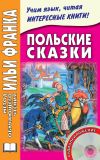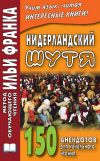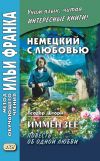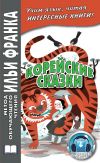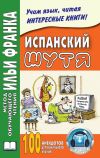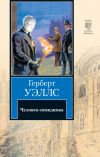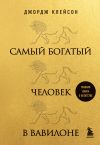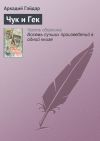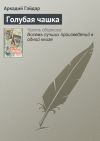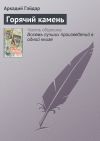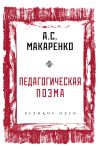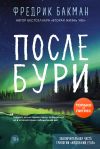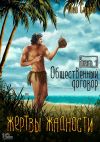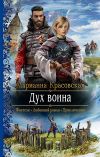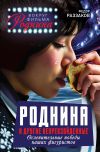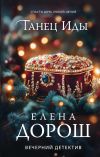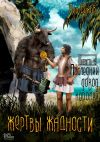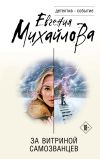Текст книги "Английская коллекция. Уильям Батлер Йейтс. Рассказы о Рыжем Ханрахане / W. B. Yeats. Stories of Red Hanrahan"
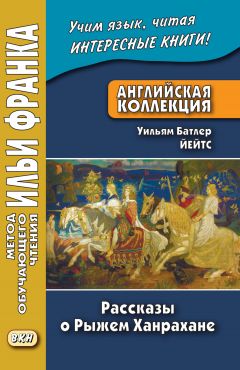
Автор книги: Уильям Йейтс
Жанр: Иностранные языки, Наука и Образование
Возрастные ограничения: +16
сообщить о неприемлемом содержимом
Текущая страница: 9 (всего у книги 9 страниц)
diamond ['daɪǝmǝnd], clubs [klʌbz], pleasure ['pleʒǝ]
He could hear the four women talking as they played, and calling out their hands. And it seemed to him that they were saying, like the strange man in the barn long ago: “Spades and Diamonds, Courage and Power. Clubs and Hearts, Knowledge and Pleasure.” And he went on saying those words over and over to himself; and whether or not he was in his dreams, the pain that was in his shoulder never left him.
And after a while the four women in the cabin began to quarrel (а спустя некоторое время эти четыре женщины в лачуге начали ссориться), and each one to say the other had not played fair (и говорить одна на другую, что та играет нечестно), and their voices grew from loud to louder, and their screams and their curses (голоса их становились все громче: «от громкого к более громкому», и их крики, и их ругательства; curse – проклятие; ругательство), till at last the whole air was filled with the noise of them around and above the house (покуда в конце концов сам воздух не наполнился шумом от них и вокруг дома и над /ним/), and Hanrahan, hearing it between sleep and waking, said (а Ханрахан, слыша их в полусне: «между сном и бодрствованием», сказал): “That is the sound of the fighting between the friends and the ill-wishers of a man (это звук борьбы между друзьями и теми, кто желает зла человеку) that is near his death (который близок к своей смерти). And I wonder,” he said (а вот интересно, – сказал он; to wonder – удивляться, изумляться; желать знать), “who is the man in this lonely place that is near his death (кто же этот человек в этом уединенном месте, который близок к своей смерти = лежит на смертном одре).”
quarrel ['kwɒr(ǝ)l], loud [laʋd], fighting ['faɪtɪŋ]
And after a while the four women in the cabin began to quarrel, and each one to say the other had not played fair, and their voices grew from loud to louder, and their screams and their curses, till at last the whole air was filled with the noise of them around and above the house, and Hanrahan, hearing it between sleep and waking, said: “That is the sound of the fighting between the friends and the ill-wishers of a man that is near his death. And I wonder,” he said, “who is the man in this lonely place that is near his death.”
It seemed as if he had been asleep a long time, and he opened his eyes (казалось, спал он долго, а когда он открыл глаза), and the face he saw over him was the old wrinkled face of Winny of the Cross Road (то лицо, которое он над собой увидел, было старым сморщенным лицом Винни с Перепутья). She was looking hard at him, as if to make sure he was not dead (она пристально смотрела на него, как будто чтобы удостовериться, что он не мертв; hard – твердый; усердный, упорный; to make sure – убедиться), and she wiped away the blood that had grown dry on his face with a wet cloth (и она стерла запекшуюся кровь: «кровь, которая стала сухой» с его лица влажной тканью), and after a while she partly helped him and partly lifted him into the cabin (и через некоторое время она частью помогла ему /дойти/, частью /сама/ перенесла его в хижину; to lift – поднимать), and laid him down on what served her for a bed (и уложила его на то, что служило ей постелью). She gave him a couple of potatoes from a pot on the fire (она дала ему пару картофелин из котелка на огне), and, what served him better, a mug of spring water (и – что помогло ему лучше – кружку родниковой воды; to serve – служить; оказывать помощь, помогать).
sure [ʃʋǝ], dead [ded], couple ['kʌp(ǝ)l]
It seemed as if he had been asleep a long time, and he opened his eyes, and the face he saw over him was the old wrinkled face of Winny of the Cross Road. She was looking hard at him, as if to make sure he was not dead, and she wiped away the blood that had grown dry on his face with a wet cloth, and after a while she partly helped him and partly lifted him into the cabin, and laid him down on what served her for a bed. She gave him a couple of potatoes from a pot on the fire, and, what served him better, a mug of spring water.
He slept a little now and again (временами он засыпал), and sometimes he heard her singing to herself as she moved about the house (а иногда он слышал, как она поет себе под нос, когда бродит: «передвигается» по дому), and so the night wore away (так и прошла ночь; to wear away – истекать /о времени и т. п./). When the sky began to brighten with the dawn (когда небо начало светлеть с рассветом) he felt for the bag, where his little store of money was (он нащупал свой мешочек, где находился его скромный денежный запас), and held it out to her (и протянул его ей; to hold out – протягивать), and she took out a bit of copper and a bit of silver money (она вынула несколько медных и несколько серебряных монет: «денег»; to take out – вынимать; a bit of – немного), but she let it drop again as if it was nothing to her (но бросила их назад: «но позволила им упасть снова», как будто они были ничем для нее), maybe because it was not money she was used to beg for, but food and rags (может быть, потому что она привыкла просить не деньги, а еду и лохмотья); or maybe because the rising of the dawn was filling her with pride (или, может быть, потому что наступление рассвета наполняло ее гордостью; to rise – подниматься; восходить) and a new belief in her own great beauty (и новой верой в ее великую красоту).
brighten ['braɪtn], dawn [dɔ:n], belief [bɪ'li:f]
He slept a little now and again, and sometimes he heard her singing to herself as she moved about the house, and so the night wore away. When the sky began to brighten with the dawn he felt for the bag; where his little store of money was, and held it out to her, and she took out a bit of copper and a bit of silver money, but she let it drop again as if it was nothing to her, maybe because it was not money she was used to beg for, but food and rags; or maybe because the rising of the dawn was filling her with pride and a new belief in her own great beauty.
She went out and cut a few armfuls of heather (она вышла, срезала несколько охапок вереска), and brought it in and heaped it over Hanrahan (принесла в /хижину/ и навалила их на Ханрахана), saying something about the cold of the morning (говоря что-то об утреннем холоде), and while she did that he took notice of the wrinkles in her face (и покуда она это делала, он обратил внимание на морщины у нее на лице), and the greyness of her hair, and the broken teeth that were black and full of gaps (на седину волос и на разрушенные зубы, которые были черными и выщербленными; full – полный, наполненный целиком; изобилующий, богатый /чем-л./; gap – брешь, пролом). And when he was well covered with the heather (а когда он был хорошо укрыт вереском) she went out of the door and away down the side of the mountain (она вышла за дверь и /направилась/ вниз по склону горы), and he could hear her cry, “I am beautiful, I am beautiful,” getting less and less as she went (и он мог слышать ее крик: «Я прекрасна, я прекрасна», становившийся все слабее и слабее, по мере того, как она удалялась; little – маленький; слабый; less – меньший), till at last it died away altogether (пока, наконец, совсем не затих; to die away – замирать, затихать /о звуке/).
few [fju:], armful ['ɑ:mfʋl], altogether ['ɔ:ltǝ'ɡeðǝ]
She went out and cut a few armfuls of heather, and brought it in and heaped it over Hanrahan, saying something about the cold of the morning, and while she did that he took notice of the wrinkles in her face, and the greyness of her hair, and the broken teeth that were black and full of gaps. And when he was well covered with the heather she went out of the door and away down the side of the mountain, and he could hear her cry, “I am beautiful, I am beautiful,” getting less and less as she went, till at last it died away altogether.
Hanrahan lay there through the length of the day, in his pains and his weakness (Ханрахан пролежал там весь день, /испытывая/ боль и слабость; length – длина; длительность, продолжительность), and when the shadows of the evening were falling (а когда опустились вечерние сумерки; the shadows of the evening – «тени вечера», сумерки) he heard her voice again coming up the hillside (он снова услышал, как ее голос поднимается вверх по склону холма), and she came in and boiled the potatoes and shared them with him the same way as before (она вошла, сварила картошку и поделилась с ним точно так же, как прежде). And one day after another passed like that (так проходили день за днем; like that – подобным образом, точно так же), and the weight of his flesh was heavy about him (и бремя его плоти было тяжело ему). But little by little as he grew weaker he knew (но понемногу становясь все слабее, он понимал; little by little – мало-помалу) there were some greater than himself in the room with him (что в комнате с ним находятся некие /существа/, более значительные, чем он сам), and that the house began to be filled with them (и что дом начинает наполняться ими);
weakness ['wi:knɪs], potatoes [pǝ'teɪtǝʋz], grew [ɡru:]
Hanrahan lay there through the length of the day, in his pains and his weakness, and when the shadows of the evening were falling he heard her voice again coming up the hillside, and she came in and boiled the potatoes and shared them with him the same way as before. And one day after another passed like that, and the weight of his flesh was heavy about him. But little by little as he grew weaker he knew there were some greater than himself in the room with him, and that the house began to be filled with them;
and it seemed to him they had all power in their hands (и ему казалось, что вся сила у них в руках), and that they might with one touch of the hand break down the wall (и что они могут одним прикосновением руки разрушить ту стену) the hardness of pain had built about him (которую тягостная боль возвела вокруг него; hardness – твердость; суровость, тяжесть), and take him into their own world (и забрать его в свой собственный мир). And sometimes he could hear voices, very faint and joyful (иногда он слышал: «мог слышать» голоса, очень тихие и веселые), crying from the rafters or out of the flame on the hearth (доносившиеся: «кричащие» со стропил или из пламени очага), and other times the whole house was filled with music (а в другие разы весь дом наполнялся музыкой) that went through it like a wind (которая проносилась сквозь него, подобно ветру). And after a while his weakness left no place for pain (но через некоторое время его слабость не оставила места для боли), and there grew up about him a great silence (и вокруг него воцарилось великое безмолвие; to grow up – созревать; создаваться, возникать) like the silence in the heart of a lake (подобно безмолвию в самой глубине озера; heart – сердце; сердцевина, середина), and there came through it like the flame of a rushlight the faint joyful voices ever and always (и сквозь нее проникали, словно пламя от лучины, неясные, но неизменно радостные голоса; to come through – проникать, проходить насквозь; ever – всегда, постоянно; always – всегда, неизменно).
hardness ['hɑ:dnǝs], built [bɪlt], rushlight ['rʌʃlaɪt]
and it seemed to him they had all power in their hands, and that they might with one touch of the hand break down the wall the hardness of pain had built about him, and take him into their own world. And sometimes he could hear voices, very faint and joyful, crying from the rafters or out of the flame on the hearth, and other times the whole house was filled with music that went through it like a wind. And after a while his weakness left no place for pain, and there grew up about him a great silence like the silence in the heart of a lake, and there came through it like the flame of a rushlight the faint joyful voices ever and always.
One morning he heard music somewhere outside the door (однажды утром он услышал музыку, /звучащую/ где-то за дверью), and as the day passed it grew louder and louder (и по мере того, как проходил день, она становилась все громче и громче) until it drowned the faint joyful voices (пока не заглушила эти неясные радостные голоса; to drown – тонуть; заглушать /звук, голос/), and even Winny’s cry upon the hillside at the fall of evening (и даже крики Винни на склоне холма на закате дня). About midnight and in a moment, the walls seemed to melt away (около полуночи в один миг стены, казалось, растаяли) and to leave his bed floating on a pale misty light (и позволили его постели плыть в бледном туманном свете; to leave – оставлять, покидать; позволять) that shone on every side as far as the eye could see (который светил во все стороны, насколько хватало глаз: «так далеко, как мог видеть глаз»; to shine); and after the first blinding of his eyes he saw (после первого ослепления глаз = и как только глаза привыкли к этому свету, он увидел) that it was full of great shadowy figures rushing here and there (что он полон огромных призрачных фигур, снующих повсюду: «здесь и там»).
drown [draʋn], blinding ['blaɪndɪŋ], figure ['fɪɡǝ]
One morning he heard music somewhere outside the door, and as the day passed it grew louder and louder until it drowned the faint joyful voices, and even Winny’s cry upon the hillside at the fall of evening. About midnight and in a moment, the walls seemed to melt away and to leave his bed floating on a pale misty light that shone on every side as far as the eye could see; and after the first blinding of his eyes he saw that it was full of great shadowy figures rushing here and there.
At the same time the music came very clearly to him (в это же время до него очень отчетливо донеслась музыка), and he knew that it was but the continual clashing of swords (и он понял, что это /не что иное/, как беспрерывный звон мечей).
“I am after my death,” he said (я уже умер: «я нахожусь после своей смерти», – сказал он), “and in the very heart of the music of Heaven (и /нахожусь/ в самой сущности Музыки Небес). O Cherubim and Seraphim, receive my soul (о, херувимы и серафимы, примите мою душу; to receive – получать; принимать /гостей, посетителей/)!”
At his cry the light where it was nearest to him filled with sparks of yet brighter light (от его крика свет, в той части, что была ближе всего к нему, наполнился искрами еще более яркого света), and he saw that these were the points of swords turned towards his heart (и он увидел, что это острия мечей, направленные: «повернутые» ему в сердце); and then a sudden flame, bright and burning like God’s love or God’s hate (а потом внезапно /полыхнувшее/ пламя, яркое и обжигающее, как Божья любовь или Божья ненависть), swept over the light and went out and he was in darkness (смело этот свет и погасло, и он оказался в темноте; to sweep – мести, подметать; уничтожать, сносить; to go out – затухать, гаснуть).
continual [kǝn'tɪnjʋǝl], Cherubim ['tʃerǝbɪm], seraphim ['serǝfɪm]
At the same time the music came very clearly to him, and he knew that it was but the continual clashing of swords.
“I am after my death,” he said, “and in the very heart of the music of Heaven. O Cherubim and Seraphim, receive my soul!”
At his cry the light where it was nearest to him filled with sparks of yet brighter light, and he saw that these were the points of swords turned towards his heart; and then a sudden flame, bright and burning like God’s love or God’s hate, swept over the light and went out and he was in darkness.
At first he could see nothing (поначалу он не видел: «не мог видеть» ничего), for all was as dark as if there was black bog earth about him (потому что повсюду было темно, как будто вокруг него была черная болотная земля), but all of a sudden the fire blazed up as if a wisp of straw had been thrown upon it (но внезапно огонь полыхнул, как будто на него бросили пучок соломы; all of a sudden – внезапно, вдруг). And as he looked at it (и пока он смотрел на него), the light was shining on the big pot that was hanging from a hook (свет засиял на большом котелке, висевшем на крюке), and on the flat stone where Winny used to bake a cake now and again (и на плоском камне, где Винни порой пекла лепешку), and on the long rusty knife she used to be cutting the roots of the heather with (и на длинном ржавом ноже, которым она обычно обрезала корни у вереска), and on the long blackthorn stick he had brought into the house himself (и на длинной терновой палке, которую он принес в этот дом сам).
first [fɜ:st], straw [strɔ:], knife [naɪf]
At first he could see nothing, for all was as dark as if there was black bog earth about him, but all of a sudden the fire blazed up as if a wisp of straw had been thrown upon it. And as he looked at it, the light was shining on the big pot that was hanging from a hook, and on the flat stone where Winny used to bake a cake now and again, and on the long rusty knife she used to be cutting the roots of the heather with, and on the long blackthorn stick he had brought into the house himself.
And when he saw those four things (и когда он увидел эти четыре предмета), some memory came into Hanrahan’s mind (какое-то воспоминание всплыло у Ханрахана в памяти), and strength came back to him (силы к нему вернулись), and he rose sitting up in the bed, and he said very loud and clear (он приподнялся, садясь на постели, и сказал очень громко и отчетливо): “The Cauldron, the Stone, the Sword, the Spear (Котел, Камень, Меч, Копье). What are they (чем они являются)? Who do they belong to (кому они принадлежат)? And I have asked the question this time,” he said (я /сумел/ задать вопрос на этот раз, – сказал он).
And then he fell back again, weak (потом он, ослабев, откинулся назад: «упал назад снова, слабый»), and the breath going from him (и дыхание покинуло его).
Winny Byrne, that had been tending the fire, came over then (тогда Винни Бирн, которая хлопотала у огня, подошла; to tend – заботиться; ухаживать; присматривать), having her eyes fixed on the bed (не отводя взгляда от постели; to fix – укреплять, закреплять; неотрывно смотреть); and the faint laughing voices began crying out again (и неясные смеющиеся голоса снова начали покрикивать), and a pale light, grey like a wave, came creeping over the room (и бледный свет, серый, как /гребень/ волны, пополз по комнате), and he did not know from what secret world it came (и он не понимал, из какого таинственного мира он исходил).
cauldron ['kɔ:ldr(ǝ)n], sword [sɔ:d], spear [spɪǝ]
And when he saw those four things, some memory came into Hanrahan’s mind, and strength came back to him, and he rose sitting up in the bed, and he said very loud and clear: “The Cauldron, the Stone, the Sword, the Spear. What are they? Who do they belong to? And I have asked the question this time,” he said.
And then he fell back again, weak, and the breath going from him.
Winny Byrne, that had been tending the fire, came over then, having her eyes fixed on the bed; and the faint laughing voices began crying out again, and a pale light, grey like a wave, came creeping over the room, and he did not know from what secret world it came.
He saw Winny’s withered face and her withered arms (он видел сморщенное лицо Винни и ее сморщенные руки) that were grey like crumbled earth (которые были серыми, как осыпавшаяся земля), and weak as he was he shrank back farther towards the wall (и несмотря на то, что он был слаб, он отодвинулся подальше к стене; to shrink – уменьшаться, сокращаться; отпрянуть, отшатнуться). And then there came out of the mud-stiffened rags arms (и тут из заскорузлых от грязи лохмотьев высунулись руки; to stiffen – делать жестким, упругим) as white and as shadowy as the foam on a river (такие же белые и призрачные, как пена на реке), and they were put about his body (и они обвились вокруг его тела), and a voice that he could hear well but that seemed to come from a long way off (и голос, который он мог хорошо слышать, но который, казалось, доносится из далекого далека) said to him in a whisper (сказал ему шепотом): “You will go looking for me no more upon the breasts of women (ты больше не пойдешь искать меня на груди у женщин).”
“Who are you?” he said then (кто ты? – тогда спросил он).
crumbled ['krʌmb(ǝ)ld], foam [fǝʋm], breast [brest]
He saw Winny’s withered face and her withered arms that were grey like crumbled earth, and weak as he was he shrank back farther towards the wall. And then there came out of the mud-stiffened rags arms as white and as shadowy as the foam on a river, and they were put about his body, and a voice that he could hear well but that seemed to come from a long way off said to him in a whisper: “You will go looking for me no more upon the breasts of women.”
“Who are you?” he said then.
“I am one of the lasting people, of the lasting unwearied Voices (я – одна из вечно живущего народа, из вечных неутомимых Голосов; lasting – длительный, постоянный), that make my dwelling in the broken and the dying (/я та/, которая живет в немощных и умирающих; to make one’s dwelling – жить /где-л./; broken – разбитый, сломанный; ослабленный, подорванный /о здоровье/), and those that have lost their wits (и в тех, кто утратил свой разум; to lose); and I came looking for you, and you are mine (я пришла, чтобы найти тебя: «пришла, ища тебя», и ты /теперь/ мой) until the whole world is burned out like a candle that is spent (покуда весь мир не сгорит, как оплывшая свеча; to spend – тратить, расходовать; истощаться). And look up now,” she said (а теперь взгляни вверх, – сказала она), “for the wisps that are for our wedding are lighted (ибо пучки /соломы/, что /приготовлены/ для нашей свадьбы, уже зажжены).”
He saw then that the house was crowded with pale shadowy hands (он увидел, что дом заполнился бледными призрачными руками; to crowd – толпиться, тесниться), and that every hand was holding what was sometimes like a wisp lighted for a marriage (и каждая рука держала то, что временами походило на пук соломы, зажженный в честь свадьбы), and sometimes like a tall white candle for the dead (а временами – на высокую белую свечу, /что ставят/ покойнику).
unwearied [ʌn'wɪǝrɪd], marriage ['mærɪdʒ], dead [ded]
“I am one of the lasting people, of the lasting unwearied Voices, that make my dwelling in the broken and the dying, and those that have lost their wits; and I came looking for you, and you are mine until the whole world is burned out like a candle that is spent. And look up now,” she said, “for the wisps that are for our wedding are lighted.”
He saw then that the house was crowded with pale shadowy hands, and that every hand was holding what was sometimes like a wisp lighted for a marriage, and sometimes like a tall white candle for the dead.
When the sun rose on the morning of the morrow (когда солнце взошло утром следующего дня; morrow – утро /устар./; время, наступившее непосредственно после /какого-л./ события) Winny of the Cross Roads rose up from where she was sitting beside the body (Винни с Перепутья поднялась оттуда = с того места, где сидела рядом с телом), and began her begging from townland to townland (и отправилась просить милостыню: «и начала свое попрошайничество» от деревни к деревни), singing the same song as she walked (напевая по пути: «когда она шла» все ту же песню), “I am beautiful, I am beautiful (я прекрасна, я прекрасна). The birds in the air, the moths under the leaves, the flies over the water look at me (птицы в воздухе, мотыльки под листьями, мухи над водой смотрят на меня). Look at me, perishing woods (посмотрите на меня, бренные леса), for my body will be shining like the lake water (ибо тело мое будет сиять, как чистая вода) after you have been hurried away (когда вас унесет в /небытие/).
morrow ['mɒrǝɪ], beautiful ['bju:tɪfl], air [eǝ], away [ǝ'weɪ]
When the sun rose on the morning of the morrow Winny of the Cross Roads rose up from where she was sitting beside the body, and began her begging from townland to townland, singing the same song as she walked, “I am beautiful, I am beautiful. The birds in the air, the moths under the leaves, the flies over the water look at me. Look at me, perishing woods, for my body will be shining like the lake water after you have been hurried away.
You and the old race of men, and the race of the beasts (вы и весь род людской, и племя звериное), and the race of the fish, and the winged race (и все рыбы и племя крылатых: «крылатое племя»), are wearing away like a candle that has been burned out (исчезаете, подобно свече, которая уже догорела; to wear away – стираться, исчезать). But I laugh out loud, because I am in my youth (а я смеюсь, потому что я молода).”
She did not come back that night or any night to the cabin (она не вернулась в хижину ни в эту ночь, ни в какую другую), and it was not till the end of two days (но не прошло и двух дней: «но это не было до конца двух дней») that the turf cutters going to the bog found the body of Red Owen Hanrahan (как торфорезы, направлявшиеся на болото, обнаружили тело Рыжего Ханрахана), and gathered men to wake him and women to keen him (и собрали мужчин, чтобы помянули его, и женщин, чтобы его оплакали; to wake – просыпаться; справлять поминки /перед погребением/), and gave him a burying worthy of so great a poet (и устроили ему погребение, достойное столь великого поэта; to bury – прятать, скрывать; хоронить, погребать).
beast [bi:st], winged [wɪŋd], Owen ['ǝʋɪn], poet ['pǝʋɪt]
You and the old race of men, and the race of the beasts, and the race of the fish, and the winged race, are wearing away like a candle that has been burned out. But I laugh out loud, because I am in my youth.”
She did not come back that night or any night to the cabin, and it was not till the end of two days that the turf cutters going to the bog found the body of Red Owen Hanrahan, and gathered men to wake him and women to keen him, and gave him a burying worthy of so great a poet.
